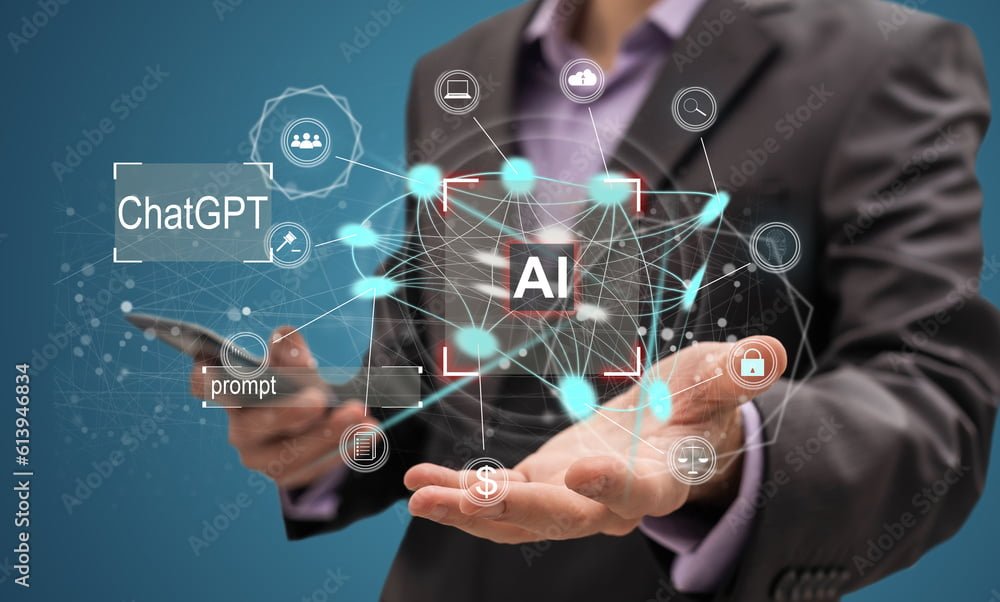Artificial intelligence and Healthcare : (AI) is rapidly transforming the healthcare industry, bringing unprecedented tools for diagnosis, treatment, and patient care. AI-powered technologies are already being used to improve the accuracy of medical diagnoses, personalize treatment plans, and provide real-time monitoring of patients.

Here are some of the key roles that AI is playing in the medical field:
- Clinical decision support: AI-powered clinical decision support tools can help doctors and other healthcare providers make better decisions about patient care. These tools can analyze large amounts of data, such as patient medical records, lab results, and imaging studies, to identify potential problems and recommend treatment options.
- Advanced Diagnostics and Medical imaging: AI plays a pivotal role in revolutionizing medical diagnostics by augmenting the capabilities of healthcare professionals in various imaging modalities. Machine learning algorithms, in conjunction with medical imaging data, have shown remarkable accuracy in identifying and diagnosing diseases like cancer, heart disease, and neurological disorders. AI-driven tools, such as computer-aided detection and diagnosis (CADe/CADx), enable faster and more precise detection of anomalies, aiding early intervention and potentially saving lives. AI is being used to improve the accuracy of medical imaging analysis. For example, AI-powered algorithms can be used to detect cancer in medical images with a high degree of accuracy.
- Drug discovery: The conventional drug discovery process is lengthy, expensive, and often yields uncertain outcomes. AI is transforming this aspect of healthcare by accelerating drug discovery and development. Machine learning models can analyze vast databases of chemical compounds and their interactions to identify potential drug candidates quickly. AI also aids in the optimization of clinical trial design, recruitment of suitable patients, and the identification of biomarkers that enhance drug response prediction, expediting the path to effective therapies. AI is being used to accelerate the drug discovery process. AI-powered algorithms can be used to screen large libraries of potential drugs for those that are most likely to be effective and safe.
- Personalized medicine: AI is being used to develop personalized medicine treatments that are tailored to the individual patient’s genetic makeup and medical history.
- Predictive Analytics and Patient : Outcomes By harnessing vast amounts of patient data, AI-powered predictive analytics models can identify trends, patterns, and risk factors that were previously difficult for clinicians to detect manually. These models can predict disease progression, patient deterioration, and even patient readmission rates. Such insights empower healthcare providers to implement proactive measures and personalized treatment plans, leading to improved patient outcomes and reduced healthcare costs.
- Remote patient monitoring: AI-powered remote patient monitoring tools can be used to track patients’ vital signs and other health data in real time. This can help doctors and other healthcare providers provide better care to patients who are homebound or live in rural areas.
The importance of AI in the medical field is undeniable. AI has the potential to revolutionize healthcare by improving the accuracy of diagnoses, personalizing treatment plans, and providing real-time monitoring of patients. As AI technology continues to develop, it is likely that AI will play an even greater role in the future of healthcare.
Here are some of the benefits of using AI in healthcare:
- Improved accuracy: AI-powered tools can analyze large amounts of data to identify patterns and trends that may be missed by human experts. This can lead to improved accuracy in diagnoses and treatment plans.
- Personalized care: AI can be used to develop personalized medicine treatments that are tailored to the individual patient’s genetic makeup and medical history. This can lead to better outcomes for patients.
- Increased efficiency: AI-powered tools can automate many of the tasks that are currently performed by healthcare workers. This can free up time for healthcare workers to focus on more complex tasks and provide better care to patients.
- Reduced costs: AI can help to reduce the costs of healthcare by improving the efficiency of care delivery and reducing the need for unnecessary tests and procedures.
The future of AI in healthcare is bright. As AI technology continues to develop, it is likely that AI will play an even greater role in the future of healthcare. AI has the potential to revolutionize healthcare by improving the accuracy of diagnoses, personalizing treatment plans, and providing real-time monitoring of patients. This could lead to better outcomes for patients, reduced costs, and increased efficiency in the healthcare system.
However, there are also some challenges that need to be addressed before AI can be fully integrated into the healthcare system. These challenges include:
- Data privacy and security: AI-powered tools need to be able to access large amounts of data in order to work effectively. This raises concerns about data privacy and security.
- Interpretation of results: AI-powered tools can generate results that are difficult for humans to interpret. This could lead to errors in diagnoses and treatment plans.
- Bias: AI-powered tools can be biased if they are trained on data that is not representative of the population. This could lead to discrimination against certain groups of people.
Despite these challenges, the potential benefits of AI in healthcare are significant. As AI technology continues to develop, it is likely that these challenges will be addressed and AI will become an increasingly important part of the healthcare system.
- The Power of Deep Research - February 5, 2025
- Replicate Deepsake on your Laptop - February 2, 2025
- The Future of Work: AI Agents - January 31, 2025



